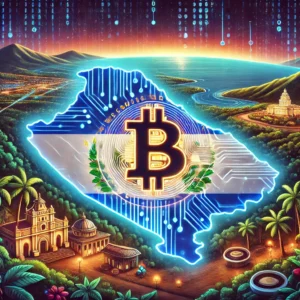El Salvador demonstrated its strong commitment to Bitcoin by purchasing over $1 million worth of the cryptocurrency a day after securing a $1.4 billion financing agreement with the IMF. It brought the country’s Bitcoin reserves to 5,980.77 BTC, valued at approximately $580 million. Jet, the financing agreement with the IMF came at a cost, as it imposed stringent conditions on the country’s Bitcoin policies.
IMF’s Restrictions Spark Questions
The IMF deal introduced significant limitations on El Salvador’s Bitcoin initiatives, challenging its progressive status as the first nation to adopt Bitcoin as legal tender. The agreement requires the government to confine Bitcoin transactions, reduce its role in public purchases, and make private-sector Bitcoin acceptance voluntary. A major stipulation is the unwinding of the Chivo wallet, a government-operated app pivotal in driving Bitcoin adoption. Critics argue these measures undermine El Salvador’s economic integration of Bitcoin and seem aimed at limiting its potential to disrupt traditional financial systems.

By shifting responsibility for Bitcoin usage to private entities, the IMF risks slowing adoption and weakening the legal tender status of Bitcoin in the country. These restrictions raise broader concerns about whether international institutions are resisting financial innovation or prioritising their own interests. Despite these challenges, El Salvador remains undeterred, reaffirming its commitment to its Bitcoin strategy and independence from conventional financial norms.
Strengthening International Partnerships
Alongside boosting its Bitcoin reserves, El Salvador is making strides to promote global cryptocurrency adoption. The nation recently partnered with Argentina to strengthen their blockchain industries, leveraging Argentina’s robust blockchain ecosystem and El Salvador’s advanced regulatory expertise to create a mutually beneficial alliance.
Moreover, El Salvador is actively pursuing similar partnerships with over 25 other nations, focusing on cross-border collaboration and regulatory knowledge sharing. Juan Carlos Reyes, President of the National Commission of Digital Assets, stressed the urgency of proactive regulations, warning that delays could lead to increased risks of fraud and money laundering. With two additional agreements nearing completion, El Salvador is solidifying its position as a global leader in digital asset regulation.

A Blueprint for Challenging Financial Norms
The IMF’s restrictions on El Salvador’s Bitcoin policies raise critical questions about global resistance to decentralised financial systems. Are these measures genuinely intended to mitigate risks, or do they reflect scepticism towards innovations that challenge traditional financial norms? Despite mounting pressures, El Salvador’s unwavering dedication to Bitcoin reinforces its leadership in cryptocurrency adoption.
Through global partnerships, regulatory advancements, and an unyielding vision, El Salvador is setting a precedent for nations seeking financial sovereignty. As debates on cryptocurrency’s global role continue, the nation’s bold stance and strategic collaborations serve as an inspiring example. Its efforts could pave the way for a decentralised financial revolution, encouraging the world to rethink its reliance on traditional systems.
